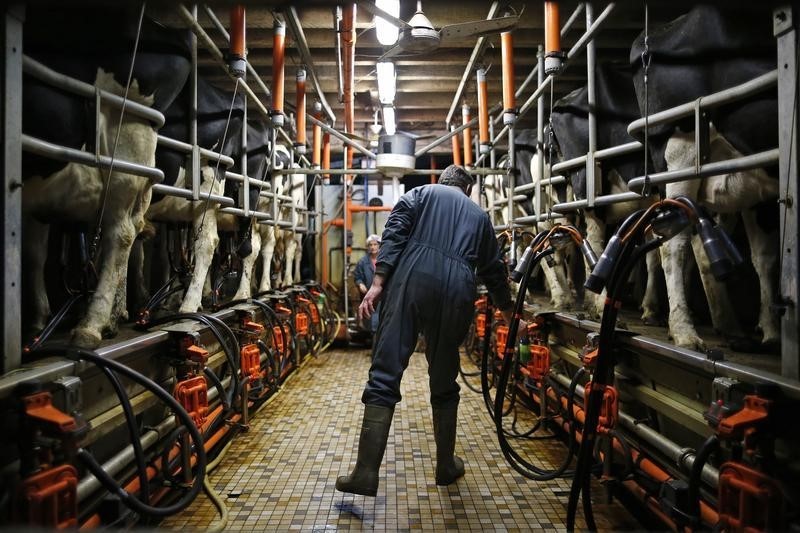(Adds central bank governor and analyst comment)
By Swati Pandey and Charlotte Greenfield
WELLINGTON, Nov 11 (Reuters) - Struggling farmers facing a second season of weak dairy prices and a regional spillover from the soaring Auckland property market are a growing risk to the New Zealand economy, the country's central bank said on Wednesday.
The danger of a substantial rise in bad loans in the dairy sector has increased over the past two years due to high debt levels and falling milk prices, the Reserve Bank of New Zealand (RBNZ) said in its six-monthly financial stability report.
"We think dairy debt has increased by about NZ$3 billion ($1.96 billion) over the past 12 months and about half the dairy farmers are experiencing the second consecutive season of negative cash flows," RBNZ governor Graeme Wheeler told reporters.
The Reserve Bank has asked the country's largest dairy lenders to undertake stress tests of their dairy portfolios and the results are expected before the end of the year.
After rising steadily since 2008 to scale record highs in 2013, global dairy prices sharply dropped because of slowing economic growth in New Zealand's top export market, China, and a global oversupply of milk products.
Prices bounced back slightly in August as slowing supply pushed up prices, offering hope the dairy market was stabilising, but have declined again in two most recent global dairy auctions.
The RBNZ was also increasingly concerned about rising Auckland house prices spilling over into neighbouring regions.
"For the first time the RBNZ acknowledged recent strength in some regional markets," ANZ analysts said in a research note.
"While we don't believe a change is pending, it is clear that if strength in those markets were to persist, the RBNZ wouldn't hesitate to re-tighten lending restrictions in those markets," they added.
The RBNZ has already tightened lending rules to curb soaring house prices in Auckland. The central bank said it was too early to tell whether they were effective, but new investor restrictions were expected to cool Auckland house prices by 2 to 4 percent over the next year.
The RBNZ also said the recent fall in the New Zealand dollar was a significant buffer for the economy and for financial systems.
At its last meeting in October, the RBNZ voiced concern about the rising New Zealand dollar. The bank kept rates on hold at 2.75 percent after three consecutive cuts but suggested the bank may cut rates again at its next meeting in December.
($1 = 1.5314 New Zealand dollars)
